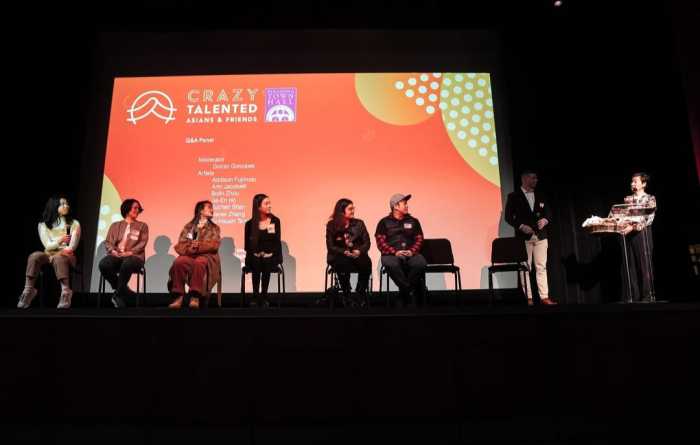A Queens congresswoman is introducing a new bill that will ensure students have internet access through mobile hotspot devices to complete their homework assignments at home.
Flushing Congresswoman Grace Meng on Monday, Nov. 25, announced her legislation, Closing the Homework Gap Through Mobile Hotspots Act, which would create a $100 million grant program for schools, libraries, U.S. territories and federally recognized Indian Tribes to purchase mobile hotspots to help close the nation’s homework gap.
As many as 12 million students in the United States lack internet access at home, according to Meng, which creates a barrier to their academic success. As a result, students must find public venues that provide free Wi-Fi, or miss completing the assignment.
“Every child deserves their best chance at pursuing an education, but it breaks my heart knowing that millions of kids, every night, are unable to finish their homework simply because they are without internet access,” Meng said. “Before the internet became ubiquitous, students completed their homework with pencil and paper — today, that is no longer the case. My bill is simple and does not require investing funds in developing new technologies to close the ‘homework gap’; instead, it builds on and expands existing infrastructures.”
“Mobile hotspot devices already exist, and with my bill, we can get them to more students who need them. Essentially, students can ‘check out’ these mobile hotspots from their schools or local libraries — just as they do for books,” Meng added.
Meng is encouraging her colleagues in the House to support the bill and to help break down barriers to education. Meanwhile, supporters of the congresswoman are applauding her efforts to bridge the divide and make sure no child is left behind.
“We applaud Congresswoman Meng’s commitment to closing the homework gap to ensure all students have the access they need to continue learning and doing homework — especially after the school day ends,” said Marc Egan, Director of Government at the National Education Association. “With more than 70 percent of educators assigning school work that requires the Internet, our educators and students experience firsthand the challenges created in teaching and learning. A solution as simple as mobile hotspots for students would go a long way in closing this inequitable homework gap.”
Wanda Brown, president of the American Library Association, said more hotspots in the nation’s 120,000 libraries is the surest way to make progress in achieving digital equity across the country.
“As America’s premier hubs of lifelong learning for all, libraries are uniquely positioned to bridge the digital divide,” Brown said. “Many offer fee-free Wi-Fi 24/7 and parking for users after hours. Many also lend hotspots — but we can’t keep enough of them on our shelves to meet the demand in our communities. The American Library Association couldn’t be more pleased that Rep. Meng and the long list of cosponsors have a plan to fill that need through the Closing the Homework Gap Through Mobile Hotspots Act.”
Jessica Rosenworcei, commissioner of the Federal Communications Commission (FCC) added that wireless hotspots can help children get online, do research, learn new ideas, download assignments and communicate with their teachers — in short, helping them to succeed.
“It’s on us to ensure that every child has a fair shot at that success,” Rosenworcei said.
































